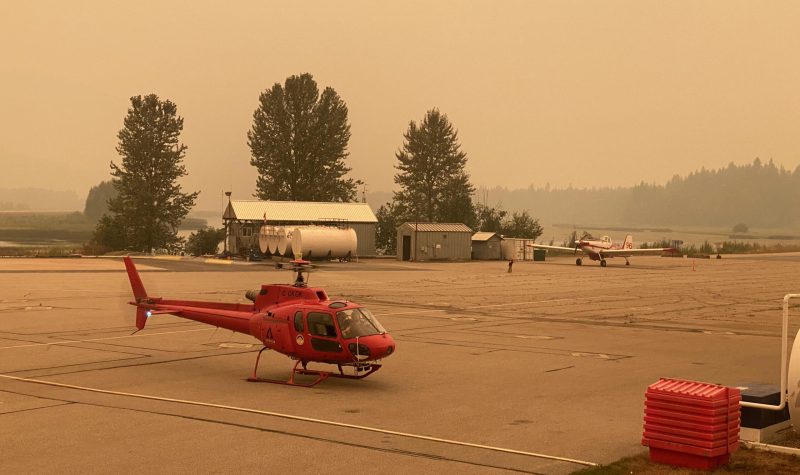The province of B.C. is shifting how it responds to wildfires, emphasizing risk mitigation and preparation, along with reacting to fires when they happen.
Len Youden is the FireSmart Coordinator for the Columbia Shuswap Regional District, a program funded by the province.
“No one knows what this season will be like,” he said, “but we’re all pretty confident in the next one to three years, we’re going to have another record wildfire season.”
Youden’s role is to help property owners in the regional district reduce the likelihood that their home or property will catch on fire from a wildfire. With this extended, rainy, mild spring, Youden says people are letting their guard down.
“Look long-term,” he says.
“If each of us had a plan over the course of the next one to three years to reduce our individual property risk, when, inevitably we are threatened by a wildfire, we’re ready.”
Revelstoke is in the regional district’s electoral district b. Youden’s program is funded to assist rural property owners in the district. The province is responsible for Crown land, and the city of Revelstoke is responsible for the municipality through a service agreement with the regional district.
Through his program, Youden says property owners can assess the risk on their land themselves, using information on the regional district’s website. Or, they can ask someone from the FireSmart program to come and assess their property, for free. People who implement recommendations from the program are eligible for a rebate of up to $500 to cover the costs.
“In most cases there’s still a very limited understanding in what causes home ignition.” Youden said.
Most factors that will determine if a house survives or if it doesn’t, are inside ten feet of a property. It can be as simple as making sure gutters are free of debris.
Last year, so many people applied for a rebate that they had to refill the funding pot.
Youden’s been in his role for four years. Every year, the province is more supportive of the program, he said.
In this year’s budget, released in February, B.C. pledged up to $90 million dollars to support FireSmart programming.
It’s also spending money to be less reactive to wildfires—according to the budget document: “Funding will move the B.C. Wildfire Service from its current reactive model of wildfire response to a more proactive approach and allow it to work on all four pillars of emergency management (prevention and mitigation, preparedness, response, and recovery).”
David Mohn is the training officer with the Revelstoke fire department and the emergency program coordinator for the city's Emergency Management Program. This is the program that’s funded through the service agreement with the regional district.
Revelstoke currently doesn’t have a FireSmart program like the regional district does, although it could.
“We’ve been talking about that for a few years but it’s never really caught on,” Mohn said.
He says property owners interested in learning about how to reduce the risk of catching on fire from a wildfire, can go to the city’s website for information.
Click the link below to hear the report from StokeFM, which aired on June 22, 2022:


